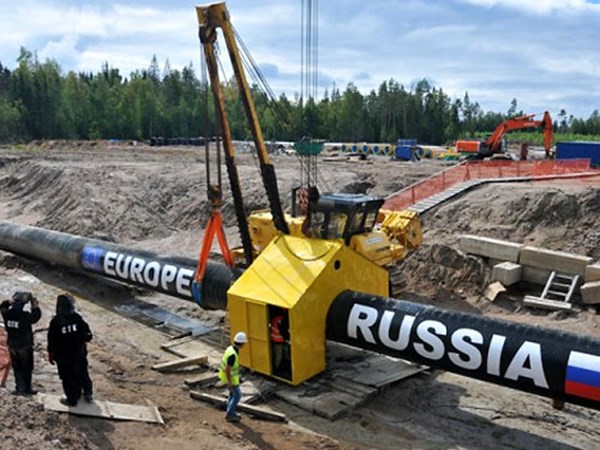Nord Stream 2 pipeline: almost 350 German companies may face US sanctions
Almost 350 German companies which are taking part in the Nord Stream-2 project may be affected by the US sanctions, said the Chief Executive of Foreign Trade at the Association of German Chambers of Industry and Commerce (DIHT), Volker Treier in a commentary for the news network Redaktions Netzwerk Deutschland.
According to him, there is growing concern in German business due to Washington's intention to impose sanctions against companies involved in the construction of the Russian gas pipeline.
"U.S. sanctions against Nord Stream 2 are bad news for the German economy," Treier said. According to him, this adds to the growing concern of the German bisuness about the further escalation of the trade conflict.
"The decision of the U.S. House of Representatives will lead to more uncertainty in world markets," Treier predicts.
Earlier, the U.S. House of Representatives passed the National Defense Authorization Act for 2020, which provides for sanctions on the construction of the Nord Stream-2 gas pipeline. The Office of the Ukrainian President expressed gratitude to the United States for supporting sanctions against Nord Stream-2.
On November 13, the Bundestag supported the consolidation of the EU gas directive in German legislation with amendments that allow to remove part of the Russian gas pipeline "North Stream-2" from the rules of the Third Energy Package of the EU. In response, Polish state oil and gas company PGNiG threatened Germany with a lawsuit if Berlin does not implement the EU gas directive in full.
Prior to that, Denmark authorized the construction of Nord Stream 2 on its territory. Denmark was the last European country to block the construction of the gas pipeline in its territorial waters.
The Nord Stream 2 pipeline, which is being laid along the bottom of the Baltic Sea, is designed to transport gas directly from suppliers in Russia to consumers in Europe. The presumed capacity of the “stream” will be 55 billion cubic meters per year. The project will constitute an alternative transit option if the transit agreement between Russia and Ukraine, which expires on December 31 this year, is not extended. The pipeline bypasses the transit states – Ukraine, Belarus, Poland and other Eastern European and Baltic states – and passes through the economic zones and territorial waters of Russia, Finland, Sweden, Denmark and Germany.
The project is being realized by Gazprom in conjunction with the European companies Engie, Uniper, OMV, Shell and Wintershall.
